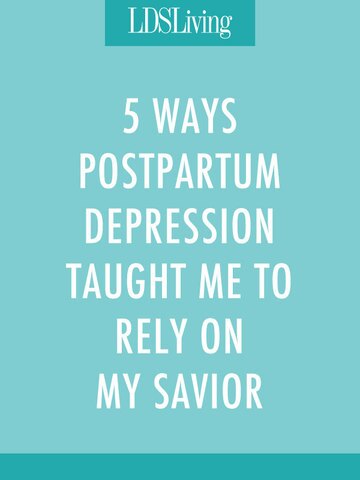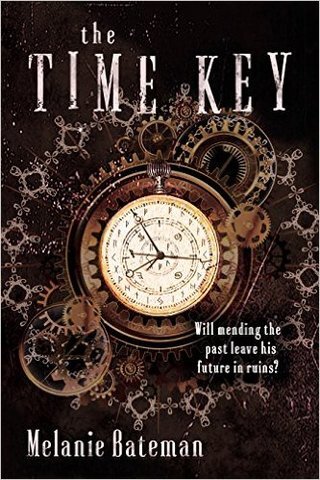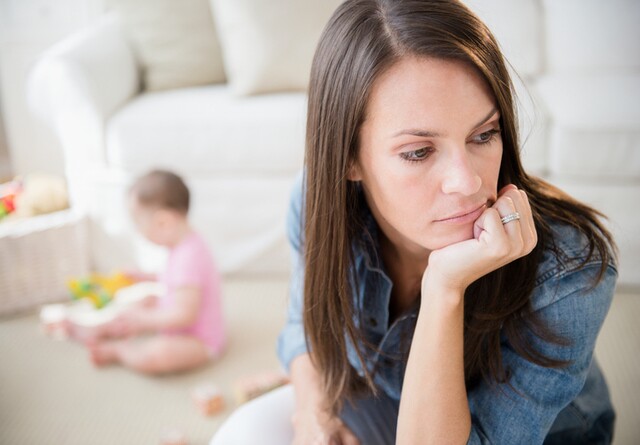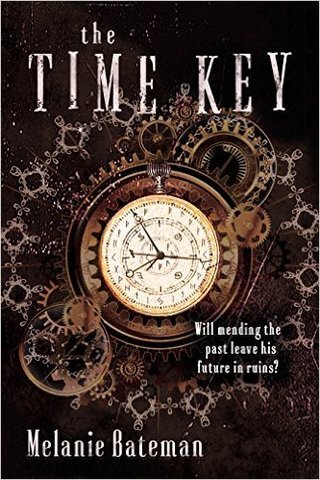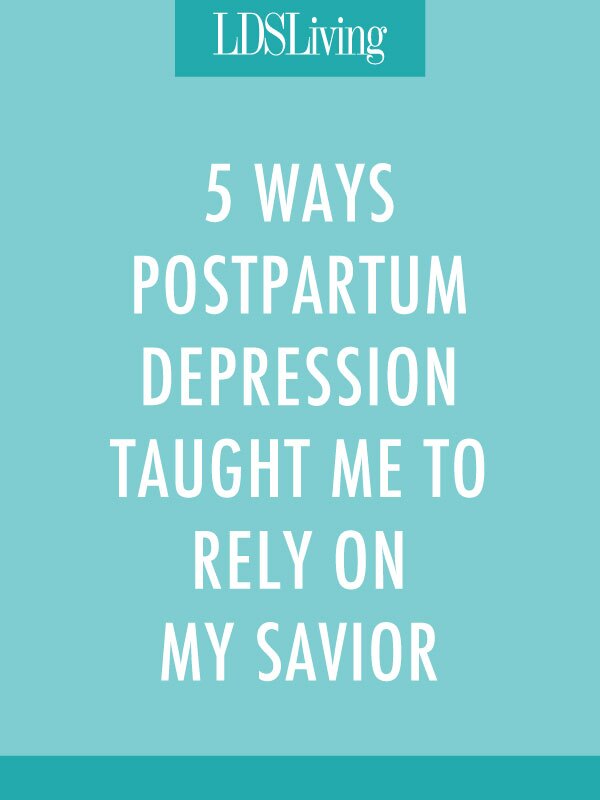
The “baby blues.” Every mother has heard of them. Some have even experienced them. It’s those weepy days—or weeks—following the birth of your baby.
I was told it was normal when unexplainable sadness came over me with my first child. I told myself it would pass. My body was changing yet again, and I just needed time to adjust to life with a newborn.
No one told me it would last months, even a whole year. Each day I found it harder to get out of bed and tend to the new, demanding member of our family. My days blurred into one long, numbing existence, and that entire first year is now just a sad, foggy memory that I look back on with regret.
With my second child I thought I could do it. I thought it would be easier since I knew what to expect; I was an experienced mother. Surely the same bad experience wouldn’t happen again. But I was dead wrong.
Postpartum depression is very common after having a child, and it can be triggered at any time during the first year. It doesn’t always manifest as simply weepiness and sadness, it can also show as anger, irritability, and despair (Postpartum Progress, “The Symptoms of Postpartum Depression & Anxiety (in Plain Mama English)”). I knew this. When my OB asked how I was feeling, I answered, without hesitation, that I was fine.
I wasn’t.
Realizing I Needed Help
My second child was only 3 months old when I began to notice a scary pattern in my behavior. I wasn’t getting enough sleep, I had no appetite, and I felt annoyed by the smallest things my 2-year-old did. I was angry with my husband and constantly had meaningless arguments with him. Most days, I felt like I was drowning and all I wanted was to get away as fast and as far as I could.
It all reached a terrifying climax one night, just two weeks before Christmas. Maybe it was the exhaustion from the upcoming holidays, pressure from the book I was in the middle of editing, or simply that my body self-decided it had been through enough. That night I realized that I needed help. I just wasn’t capable of doing it myself.
We all know that at times in our lives we are given trials that seem like too much to handle and that we need help. Asking for help is not easy for me, and it probably never will be. I always stubbornly believe that I can do anything myself. And as a mother, the pressure to be perfect and independent made asking for help seem like an embarrassing weakness.
Why shouldn’t I be able to juggle being a wife and mother while working on completing a novel, while also keeping those foreign and unwanted feelings at bay? If I couldn’t do all of that myself, it meant that I wasn’t cut out to do any of it.
► You'll also like: The Search for Molly Mormon
I was so caught up in comparing myself to a flawless image of motherhood that by the time I realized I did need help and that the well-being of my family was at risk, I had sunk so far down a hole of hopelessness that I was afraid I’d never make it out again. I had stopped being the logical, easygoing woman I had been and had become someone I didn’t recognize—someone who simply wanted to give up.
Seeking Help
As I write this, familiar feelings of embarrassment come over me as I remember the day that my husband and I finally went to see my OB. I remember sitting in that little room, waiting in silence and wishing I didn’t exist because facing my struggle and admitting to my despair was the hardest thing I could possibly do.
My husband didn’t know the seriousness of my debilitating depression, and as I confessed everything to my doctor, I understood that if I had not called her for help, asked my husband to come with me, shed my stubborn mask, and admitted that I was emotionally unstable, I would not have safely made it another week. Needless to say, that thought horrifies me to this day. I clearly understood that the urge to seek help when I had put it off for so long was the quiet voice of warning from the Holy Ghost.
Receiving the treatment that I needed, and finally letting go of all the doubts and pains that I had bottled up inside, I slowly allowed myself to feel relief. I began to see things clearly again, and I learned a few things from that painful experience: Motherhood is a sacred calling that I was given, but I am not expected to do it alone. Asking for help is more than okay—it’s encouraged. As alone as I may feel at times of trial, I never am. None of us are, if we allow the Holy Ghost to comfort us, warn us, and testify of the power of the Atonement.
Seeking help doesn’t make us weak. In fact, seeking help when we most need it reflects our humility. While I stubbornly kept my suffering bottled up, it only showed my pride and actually maimed my ability to be the loving mother I wanted to be.
Learning I Wasn’t Alone
We all have struggles. We are all sent trials to help us grow and overcome our weaknesses, but our loving Father in Heaven would never expect us to do it alone. I love Jeffrey R. Holland’s words of hope when he spoke in the October 1999 general conference:
“There is help. There is happiness. There really is light at the end of the tunnel. It is the Light of the World, the Bright and Morning Star, the ‘light that is endless, that can never be darkened.’ It is the very Son of God Himself” (“An High Priest of Good Things to Come”).
How quickly we forget in our mortal existence that we are not alone in our trials and struggles. It truly is a comfort to know that my Savior not only suffered for my sins but felt every pain that I would feel as He prayed in Gethsemane. All the grief and despair that I felt during my dark times of depression, He understands perfectly. If only I could have opened my eyes and allowed myself to feel His comforting arm around my shoulders, my suffering would have been eased.
One of the many ways he comforts us is through others. I would have been entirely lost without the support and love of my husband, who stood, and still stands, beside me every step forward and every step back in my recovery.
Depression not only affected me, but it affected him as well, and the patience he’s had for me has helped me be patient with myself. During a trial, we all want it to end quickly because, frankly, trials are not fun. And in the words of Elder Holland, “Don’t assume you can fix everything, but fix what you can. If those are only small victories, be grateful for them and be patient. Dozens of times in the scriptures, the Lord commands someone to ‘stand still’ or ‘be still’—and wait. Patiently enduring some things is part of our mortal education” (“Like a Broken Vessel”).
I write this in hopes that my words, however inadequate they feel, will help someone who is struggling. There is help, and there will always be help. If you find yourself in the darkest, deepest hole, don’t ever forget your Savior. He knows you and loves you and has laid out a path for you to follow so that you can find happiness again. We all have family, friends, and neighbors. Don’t be afraid to seek help from medical professionals, as they are trained to help those with depression and other emotional disorders. You may even consider reaching out to Church leaders and members, who can act as a support system on your road to recovery. None of us can overcome trials alone, and I know that as alone as you may feel, Jesus Christ is there ready to offer His unconditional love.
Remembering His Light and Love
What Elder Holland said in the October 2013 General Conference brings peace to my heart:
“Whatever your struggle, my brothers and sisters—mental or emotional or physical or otherwise—do not vote against the preciousness of life by ending it! Trust in God. Hold on in His love. Know that one day the dawn will break brightly and all shadows of mortality will flee. Though we may feel we are ‘like a broken vessel,’ as the Psalmist says, we must remember, that vessel is in the hands of the divine potter. Broken minds can be healed just the way broken bones and broken hearts are healed. While God is at work making those repairs, the rest of us can help by being merciful, nonjudgmental, and kind” (“Like a Broken Vessel”).
Remember, we all struggle. Some have different trials than others, but we are all capable of making each other’s burdens a little lighter.
Our dear prophet, President Monson, said these perfect words of comfort:
“My dear sisters, your Heavenly Father loves you—each of you. That love never changes. It is not influenced by your appearance, by your possessions, or by the amount of money you have in your bank account. It is not changed by your talents and abilities. It is simply there. It is there for you when you are sad or happy, discouraged or hopeful. God’s love is there for you whether or not you feel you deserve love. It is simply always there” (“We Never Walk Alone”).
My views of motherhood have changed, and I feel that I can accept the help of others a little more willingly than before. I still have a long way to go, but the future seems so much brighter as I keep walking, without looking back, away from that dark hole of despair. I walk briskly to my Savior’s open arms, as He willingly offers me His love.
We all deserve His love. He is willing to give it, and we should be willing to receive it. In our paths of recovery and trial, I hope we can all remember this promise.
While postpartum depression is still a delicate trial for me, I have learned a few things from my experiences. This may or may not apply to you specifically, but you can take comfort in the fact that many people, mothers or not, are also suffering and trying to take control of an invisible, yet very real, emotional disorder.
1. Asking for help is encouraged.
Motherhood is hard, and the beautiful thing is that I’m not expected to do it alone. We all have people in our lives who are more than willing to help, including our Savior. All we have to do is ask.
2. Seeking help is both humbling and empowering.
It takes a strong person to admit his or her own limitations. It’s disheartening to feel that you can’t fully depend on yourself to overcome your struggles, but once help is reached, you immediately have another support system, in addition to the Savior, that you didn’t rely on before. I found that when I asked for help, my needs were immediately met and I could start fresh. It was a humbling experience to admit that I needed help, but it gave me back the power to control my situation better.
3. I am never alone during a trial.
Depression is debilitating and isolating, and although my family didn’t know how to help me at first, they never left me to cope with it alone. Friends and family will always be willing to assist you, and if you allow Him, so will our Savior.
4. I feel the love of my Savior more through suffering.
Trials are meant to be difficult. How else are we supposed to grow? However, we are given tools to help us overcome our trials and weaknesses, and I found that searching for the influence of the Holy Ghost helped draw me closer to my Savior. He never abandoned me, and through His atoning sacrifice, He understands me and my suffering perfectly. I never felt His love more than when I was on my knees asking for it and the strength I needed to overcome.
5. It’s important to be kind.
It’s hard to know what others are going through when we haven’t experienced it ourselves. For those who know someone with depression in any of its forms, please be kind. Depression isn’t something you can simply shake off. It has to be treated, and with patience, it can be overcome. Kindness raises people up and makes them feel loved, and isn’t that what the Savior wants from each of us?
[Photo from Getty Images]
To read more from Melanie Bateman, check out her new novel, The Time Key, available on deseretbook.com.
